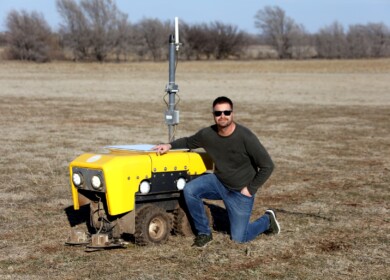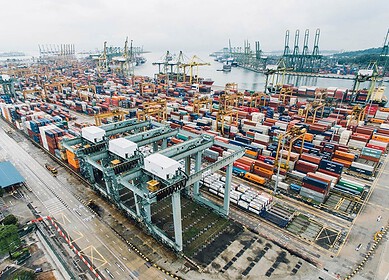ADM expands regenerative agriculture efforts across the U.S.

Agricultural and food processing giant ADM is at the forefront of transforming farming practices across the United States through regenerative agriculture. Initiating its journey into regenerative ag in 2012 as a modest cover crop incentive, ADM has significantly expanded its efforts to include large-scale programs aiming to cover over 4 million acres by 2025. This initiative represents a major shift in agricultural practices, focusing on sustainability and environmental conservation.
Paul Scheetz, ADM’s director of climate smart ag origination, detailed the company’s transition from small incentives to becoming a major player in regenerative agriculture. Initially met with skepticism and unfamiliarity, regenerative agriculture has now gained significant traction within the industry, reflecting a broader shift in perception towards sustainable farming practices.
ADM’s approach to regenerative agriculture emphasizes an outcome-based farming strategy that enhances soil health, biodiversity, and water resources while supporting the economic development of farming businesses. This method adapts to local conditions and incorporates principles such as minimizing soil disturbance, maintaining living roots in the soil, and managing inputs responsibly.
The challenge of transitioning to regenerative practices is substantial, given the diverse conditions across different farms. ADM recognizes the uniqueness of each acre and works closely with farmers to tailor specific practices that align with their operations. The company has established partnerships with organizations like Farmers Business Network and the American Farmland Trust to provide technical assistance and advisory support.
The growth of regenerative agriculture is not just about changing farming practices but also about building a more sustainable and transparent supply chain. Companies like Nestlé and PepsiCo are among those collaborating with ADM, indicating a collective effort to incorporate regenerative agriculture into the broader food, fuel, and feed industries. This collective approach aims to demonstrate the environmental and economic benefits of regenerative practices directly within the supply chain.
Looking ahead, ADM plans to extend its regenerative agriculture initiatives into new geographies and commodities, emphasizing the importance of collaboration and research to address uncertainties and promote best practices. While the company acknowledges that regenerative agriculture may not be suitable for all farms, the goal is to engage in meaningful discussions with farmers to explore and adopt sustainable practices where possible.
As regenerative agriculture continues to gain momentum, ADM’s efforts represent a significant step towards a more sustainable agricultural future, underscoring the potential for industry-wide transformation through commitment, collaboration, and innovation.
Enjoyed this story?
Every Monday, our subscribers get their hands on a digest of the most trending agriculture news. You can join them too!
















Discussion0 comments